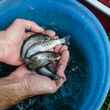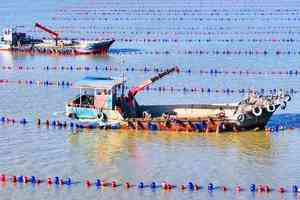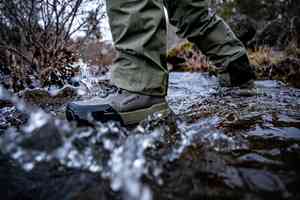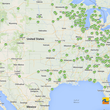Trash, mostly plastic, in the oceans is a serious problem and visible reminder of our careless attitude toward the planet. In recent years, the fly-fishing industry has dedicated continued energy to address this problem. Through the introduction of cardboard fly boxes, the American Fly Fishing Trade Association has worked to get plastic out of the waste stream. Costa has their #KickPlastic campaign, Fishpond has Cyclepond fabric, and Patagonia is working to address microfiber pollution.
These days most of us rarely look to Congress for good news, but there is a bit of positive news to convey.
Legislation to assist in cleanup of the oceans took a step forward this summer. In a rare example of bipartisan cooperation, instigated by Senator Sheldon Whitehouse of Rhode Island, the U.S. Senate passed the Save our Seas Act, S. 756 in August of this year. The legislation was introduced by Senator Dan Sullivan of Alaska and cosponsored by Senators Whitehouse, Booker (NJ), Coons (DE), Peters (MI), Inhofe (OK), Tillis (NC), and Murkowski (AK). 14 other Senators had joined them by the time the bill was passed.
The legislation reauthorizes, funds and amends the Marine Debris Act. It provides $10 million for outreach and education to address both land and sea-based marine debris challenges and $2 million for better law enforcement related to trash dumped from ships and supports Federal funding for research and development of environmentally feasible improvements to materials that reduce municipal solid waste. It also promotes international action to reduce marine debris including ocean biodegradable plastics research, examining the causes of ocean debris, developing effective prevention and mitigation strategies, and measuring the economic benefits from addressing the challenges.
"Over the course of years and decades, marine debris deposited in the ocean half a world away inevitably finds its way to our coastal communities and ecosystems. Alaska feels the brunt of this crisis with its extensive coastline," said Senator Sullivan. "I'm heartened that Senators from coastal and landlocked states alike - from both parties - have come together to support the Save Our Seas Act, which is now one step closer to becoming law. I encourage my colleagues in the House to move swiftly, so that we can reauthorize NOAA's vital Marine Debris Program and enact other measures to clean up Alaska's waters and protect our marine environment."
"Plastic garbage and other junk crowding our oceans and shores is more than an eyesore. It's a threat to vital ocean and coastal ecosystems and our economy," said Senator Whitehouse. "This bill tackles the marine debris crisis along American coasts. It will also push us to work with other countries on limiting the plastics and other harmful materials that find their way to the ocean. That includes working on an international agreement to stop the flow of trash from land into the ocean, and, if trash does get to the ocean, supporting research into new materials that break down in a way that won't wreak havoc in our seas. Thank you to Senators Sullivan, Booker, and all the bipartisan co-sponsors for helping to see this bill through."

What is encouraging is the bipartisan nature of this legislation and the fact it is moving through the Senate and not sitting idle and gathering dust. It could serve as a logical amendment to any oceans related legislation that has more momentum should the U.S. House fail to act.
The U. S. House of Representatives does have a companion measure with the same title, H.R. 2748. It was introduced by Representative Don Young of Alaska. Young has attached 39 co-sponsors to the bill so far. The bill is slowly working its way through the committee process, but with the pressing load of other legislative matters, the prospect of passage in the House seem dim.
Considering the almost unfathomable amount marine debris currently plaguing our oceans, this legislation alone is not going to solve the plastics problem, but these days any progress is good progress.
If you want to show your support for this legislation contact your Member of Congress and ask them to co-sponsor the Save our Seas Act, H.R. 2748. Don't know who represents you in Congress; find out here.
































Comments
Ryan replied on Permalink
Are the 10 Million and 2Million numbers the total funding amount? 2 Million probably only funds a handful of personnel. How does most of the trash get into the ocean? Are there illegal dumping operations or is it standard procedure in certain regions of the world to dump garbage into the ocean?
Pages